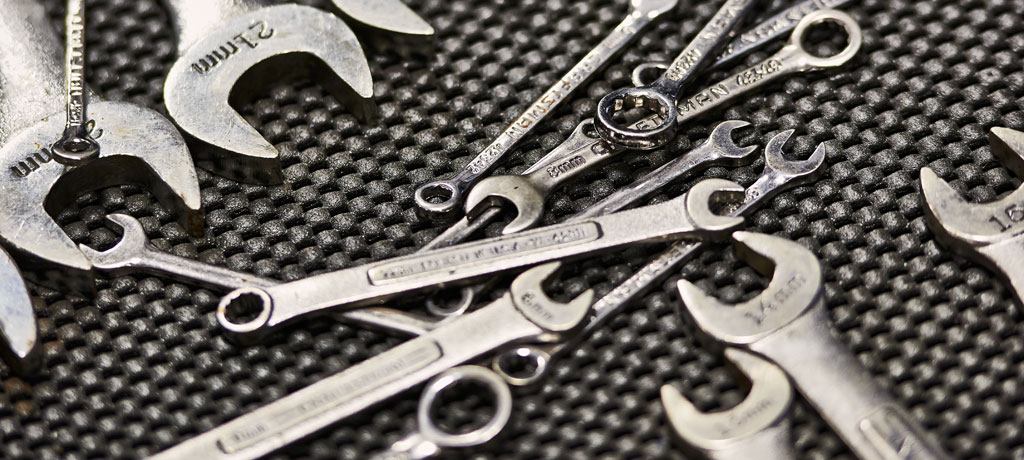What Maintenance Does an Electric Car Need? Gas vs. Electric Comparison
There is a lot to learn and explore when you’re considering the purchase of an electric car. You may wonder: What maintenance does an electric car need, and how much will it cost?
While the good news is that electric vehicles often require much less maintenance than gas vehicles, these eco-friendly models aren’t totally maintenance-free. Electric cars do need maintenance to keep them in top condition when you hit the road. Often, the requirement is just a routine check-in with a certified mechanic to monitor basic systems.
Don’t worry—Meineke has your back. Explore our guide to maintenance on electric cars to get answers to these and other pressing questions.
Maintenance On Electric Cars vs. Gas
An electric vehicle (EV) often serves as a long-term investment, but it also means relearning a few things to ensure safe driving for years to come. Electric cars have fewer moving parts than gas-powered models, but they have systems requiring ongoing maintenance.
For instance, you won’t need an oil change on your schedule anymore, but you will need a transmission fluid change. Let’s relieve some of that new owner stress and go over the basics of maintenance in an electric car vs. a gas-powered model.
What Maintenance Do Electric Cars Need?
We’ll cover common car systems you are used to providing maintenance for and outline how it compares with what you can expect from an electric car.
Battery
Your electric car’s battery will last approximately 8–15 years with proper care and maintenance. To maximize your vehicle’s battery life, take these precautions:
- Avoid extreme temperatures. Try to protect your EV from the weather whenever possible.
- Use fast charging stations in moderation. A slower charge is better for the battery, the environment, and your pocketbook.
- Don’t allow the battery to drain completely before recharging.
- Don’t recharge your battery to 100%. Most EVs perform best when charged to 85–90% of the max.
- Monitor the coolant level; some batteries rely on liquid coolant to maintain the proper temperature. Review your owner’s manual to determine whether your car’s battery uses coolant.
Body and Paint
Have you ever wondered if you can take an electric car through the automatic car wash? Yes, you can, but you should choose a gentler option than a drive-thru car wash with full-blast water jets and harsh chemicals.
Many EV owners choose to wash their cars themselves. Protect your charging port and turn off your vehicle while the water and bubbles are doing their job! You also need to watch for and take care of all the everyday bumps, dings, and windshield chips that come with driving on the road.
Brakes
Brake maintenance on electric cars is the same as on gas vehicles. Both use brake pads and fluid to allow you to bring the vehicle to a stop for safe driving. These components require monitoring.
Brake pads typically last longer on EVs than on gas cars, although your braking habits will influence their longevity. The owner’s manual will provide an estimated brake pad life and recommendations for flushing and replacing the brake fluid.
Cooling System
The conversion of electricity to mechanical energy that moves your EV still creates heat, and high temperatures can damage the components in electric and gas cars. Electric cars have two options for keeping the heat in check. Some use air, while others rely on a specialty coolant. Consult your owner’s manual for how and when to check coolant levels or undergo a coolant flush or recharge.
Engine Oil
Do EVs need oil changes? Nope! An electric motor has fewer moving parts than an engine, including no pistons or valves. Therefore, using traditional engine oil for lubrication isn’t necessary, so electric vehicles don’t contain this substance.
Electrical Systems
Your vehicle’s electrical systems are well-contained to meet safety requirements. They aren’t particularly accessible and should require little to no maintenance to keep them in good working order.
Exhaust and Muffler
An electric car doesn’t need an exhaust or muffler system. No emissions here!
Filters
Your EV doesn’t contain an engine filter, but it does have a cabin filter and may have a filter on the battery. Make sure to check and replace these filters regularly to maintain proper airflow.
Heating and Cooling
An electric car can’t rely on the heat produced by the engine heat to warm up the cabin during the winter. EVs have unique systems that provide heated and cooled air, requiring occasional air filter maintenance and refrigerant checks.
Suspension
Your electric car still depends on power steering, shocks, and struts for a smooth ride. These parts may look slightly different from those found in a gas car, but they must be monitored and repaired occasionally.
Tires
Your EV’s tires will need more care than those on gas-powered models. The weight of EV batteries is significant, putting additional strain on the rubber. Monitor the tires closely for signs of wear and tear, and rotate and balance them regularly to help extend their lifespan.
Transmission Fluid
Many EVs feature a single-speed transmission, which is a less complex version of the multi-speed transmission found in nearly every gas-powered car. However, despite its simplicity, the transmission system still requires regular fluid inspections and flushes. Failing to care for the transmission fluid can cause damage to the system and make the car unsafe to drive.
Windshield Wipers and Wiper Fluid
Windshield wipers and wiper fluid are a universal must that doesn’t change with EVs. These elements ensure a clear view of the road ahead in adverse weather conditions. Top off the washer fluid and change the wiper blades regularly.
Trust Meineke for High-Quality EV Maintenance
Our world and the way we drive are changing. We all have amazing opportunities to learn and try new things. Understanding how to drive and maintain electric cars are just two examples of changes that many people are experiencing.
While it may seem overwhelming at first, you can always count on expert mechanics like Meineke to help you know what to do for your new car. Our team members are up-to-date with the skills needed to provide high-quality maintenance on electric cars.
You don’t have to wonder what maintenance an electric car needs. Instead, find a Meineke auto repair shop near you for expert services on your electric vehicle.






